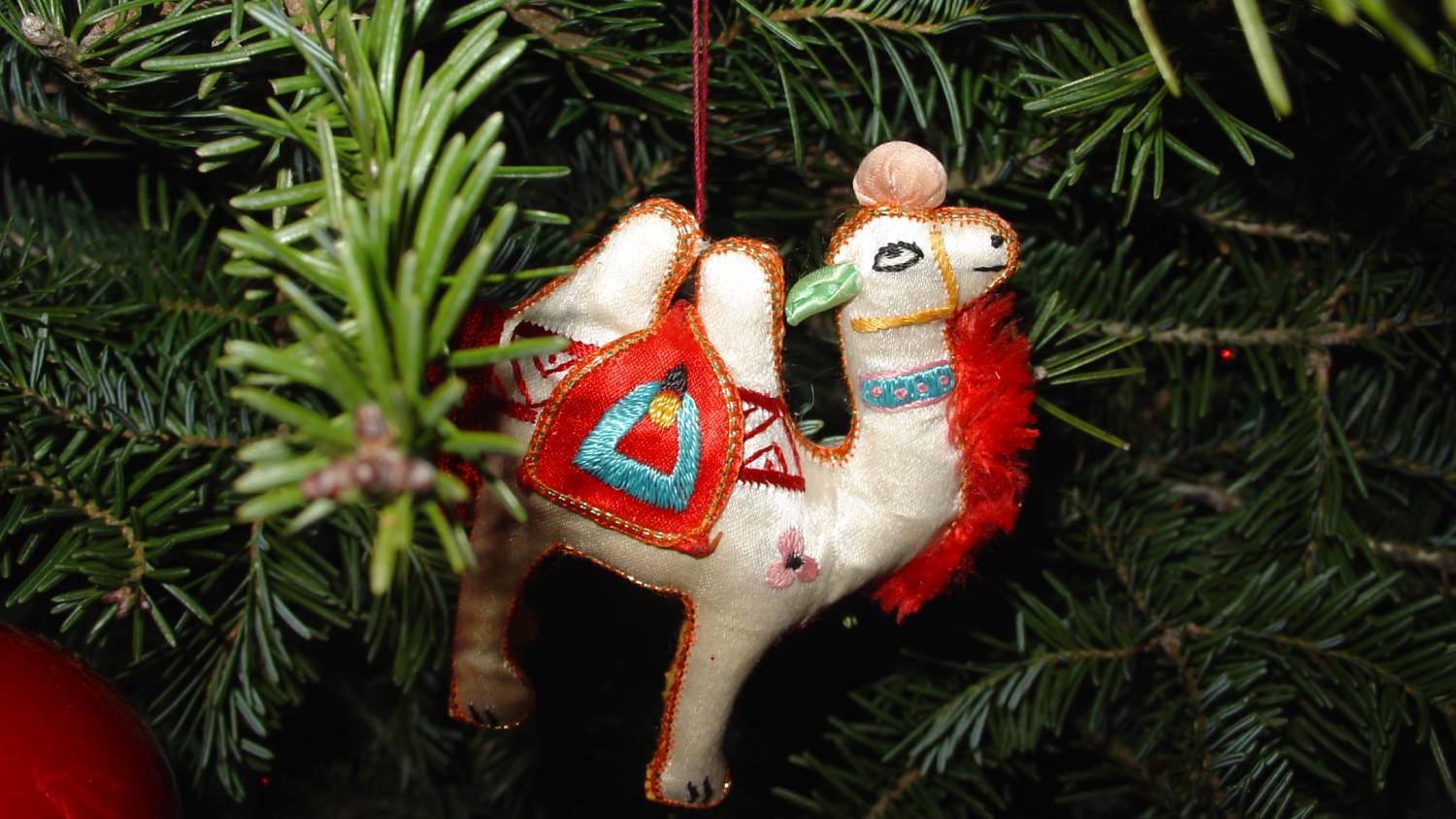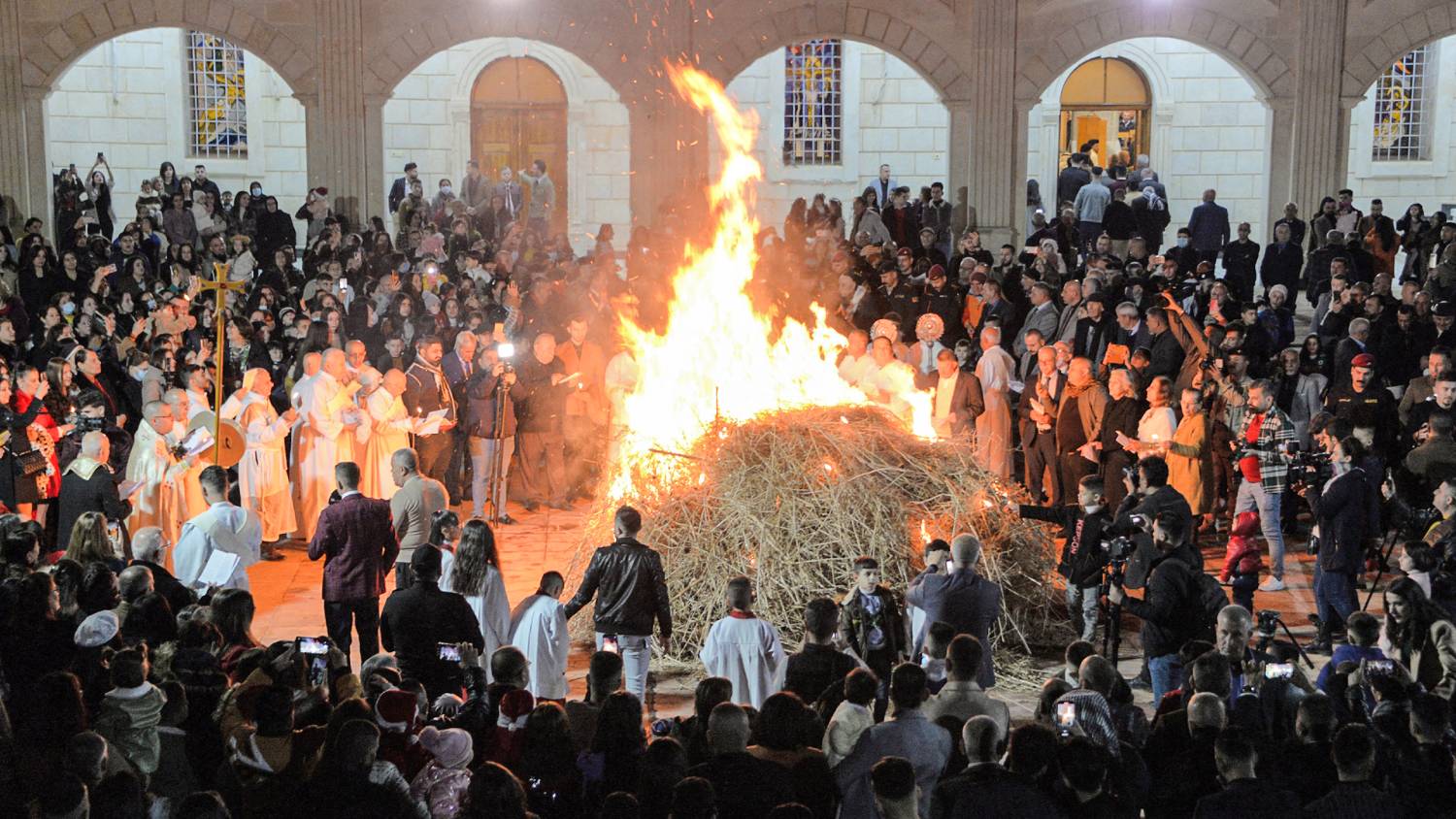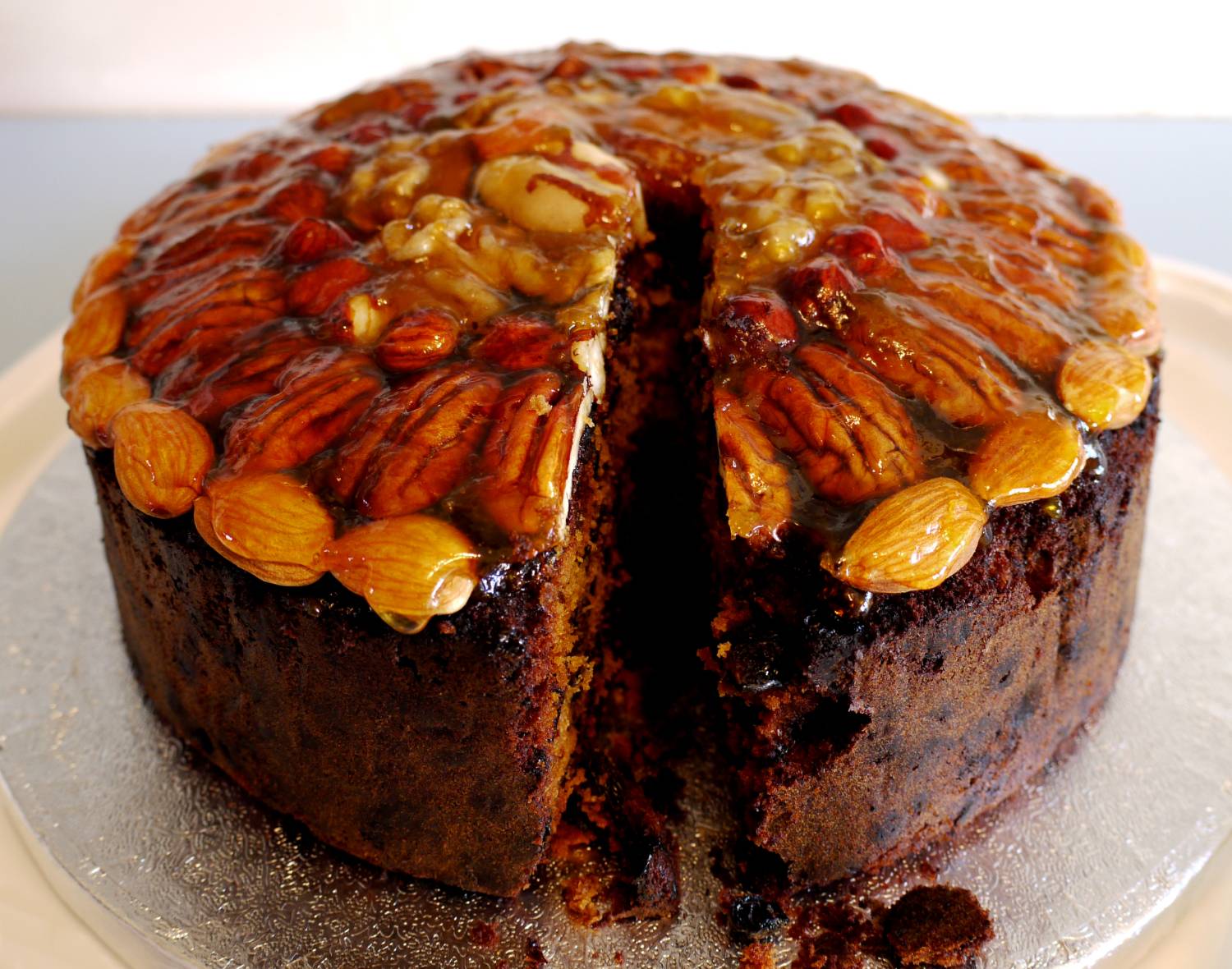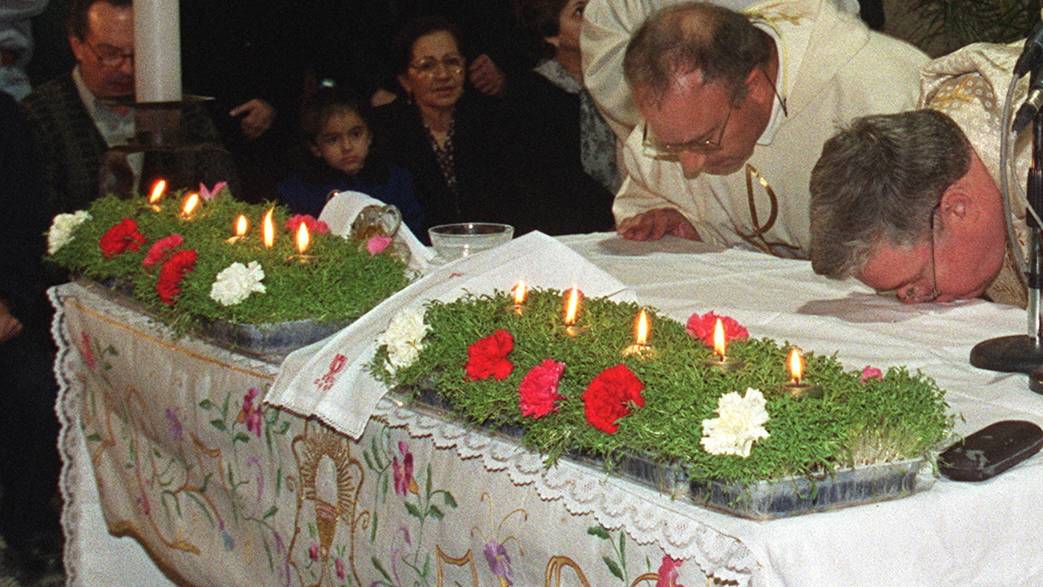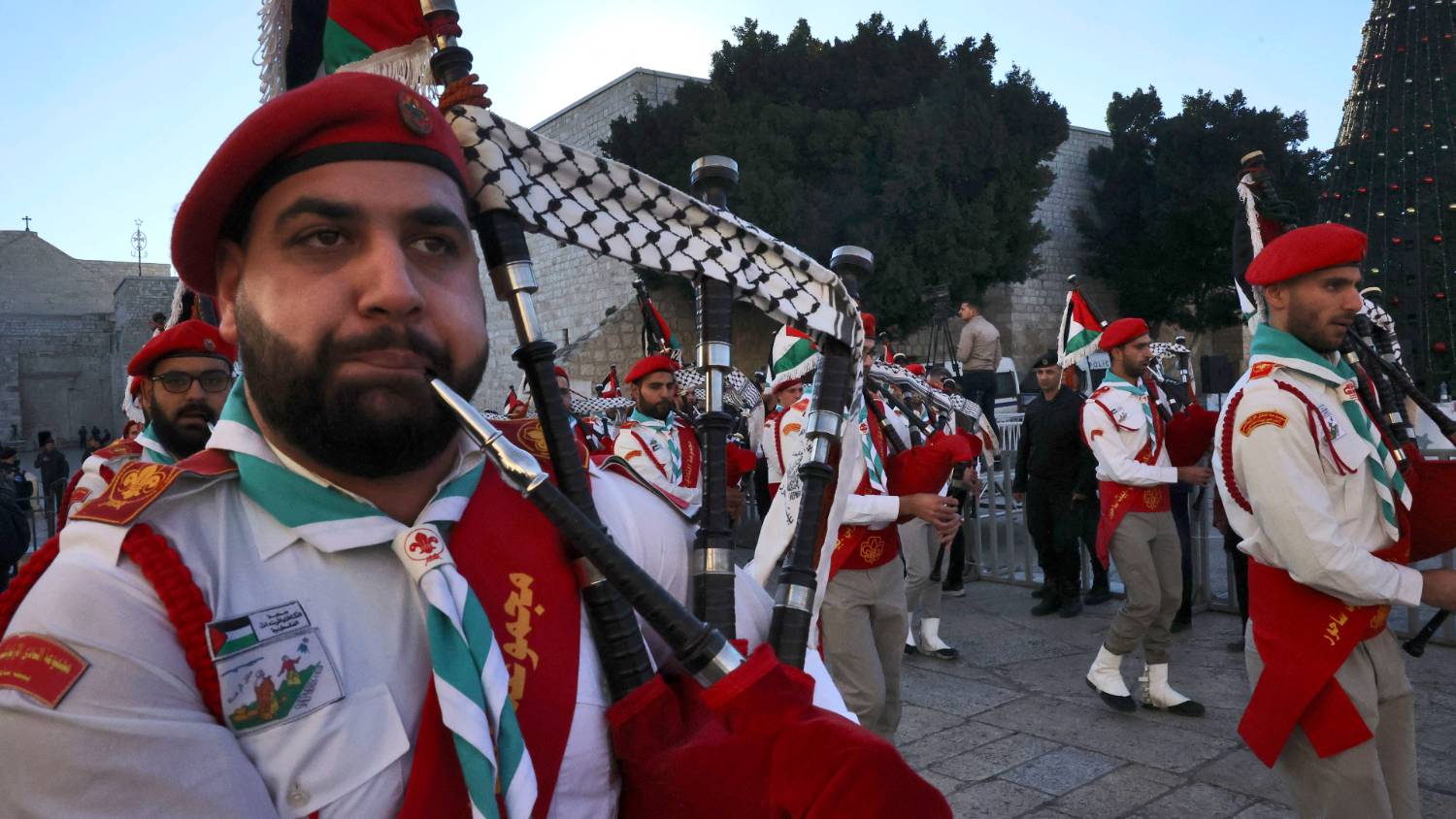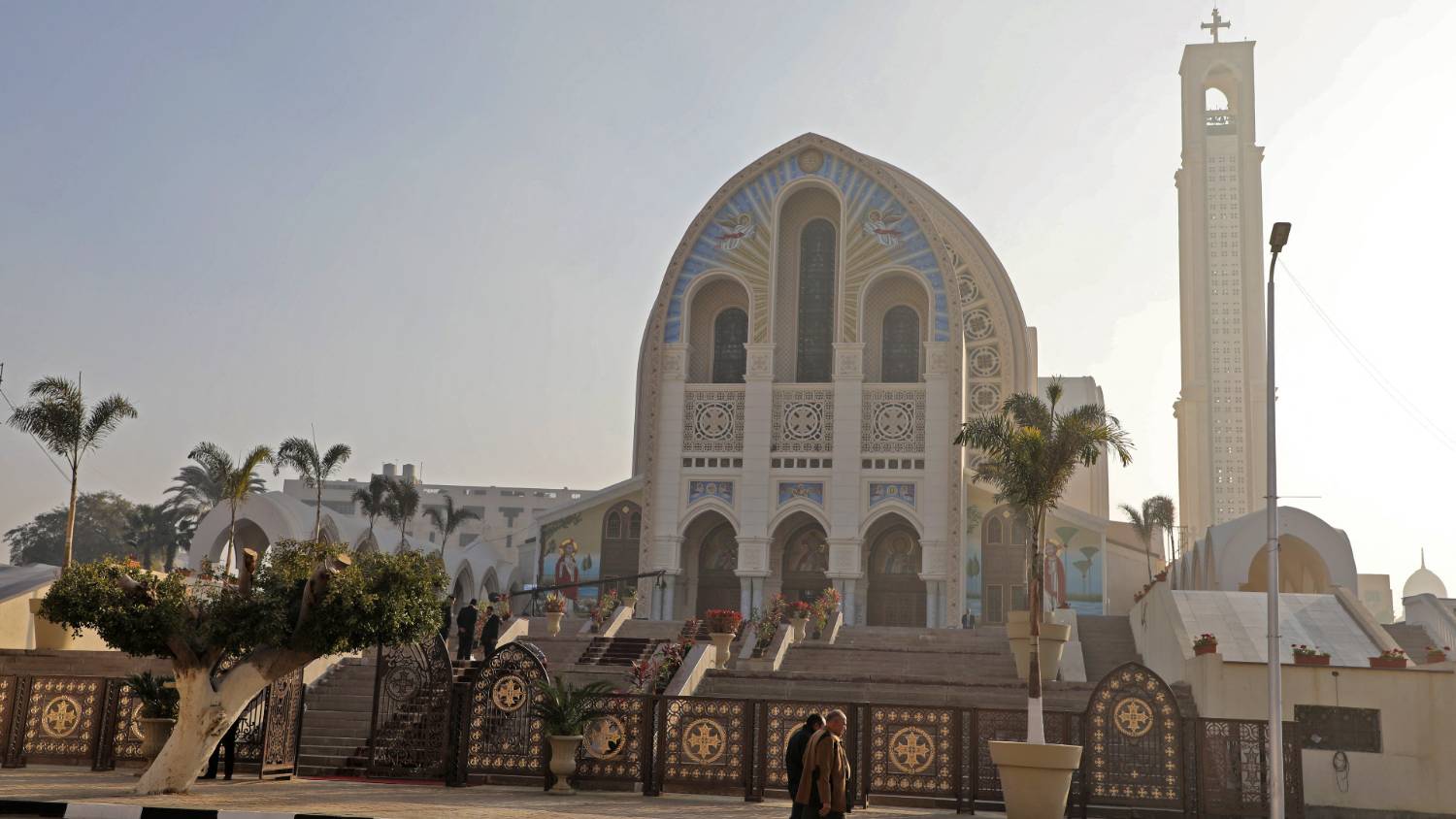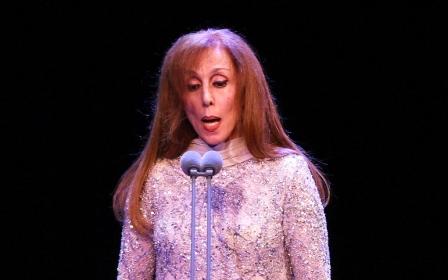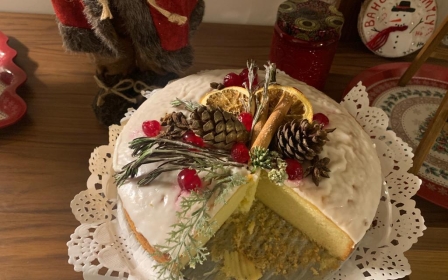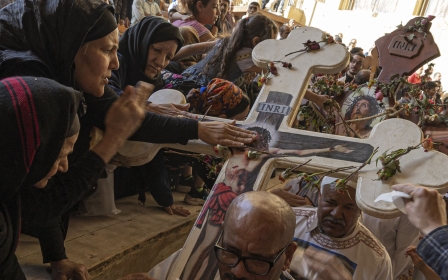Christmas camels and alcoholic cakes: Six festive traditions in the Arab world
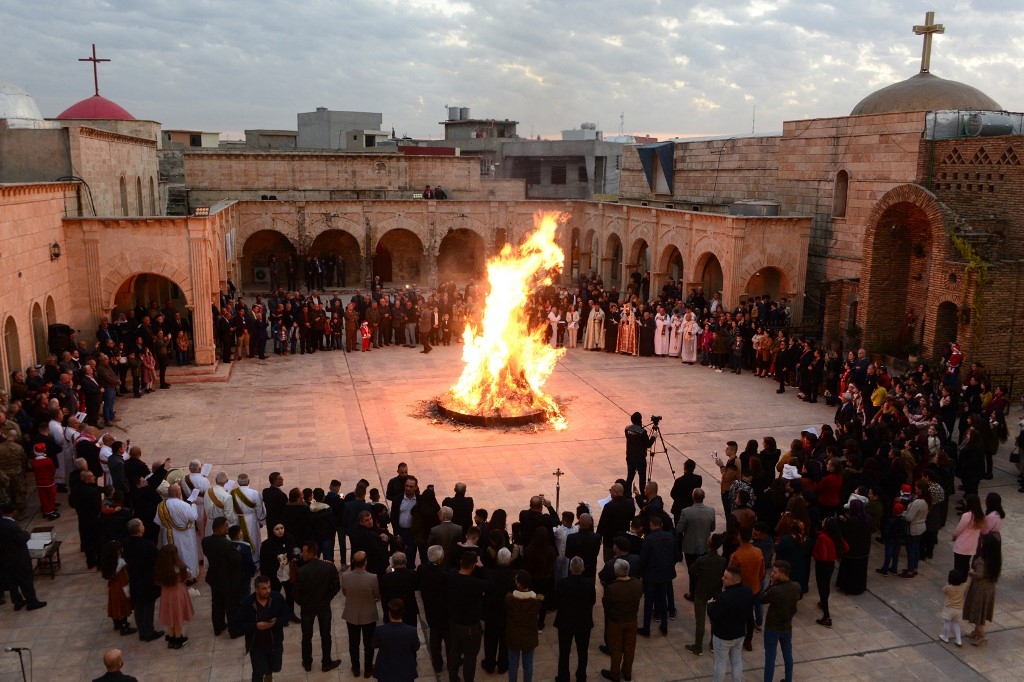
The Christian communities of the Middle East are the oldest in the world with many tracing their faith back two millennia to the foundation of the religion in what is today Palestine, Israel, and Syria.
Some Christians in parts of Iraq and Syria still speak dialects of the Aramaic languages that Jesus would have spoken.
The largest Christian population in the region is in Egypt, where they make up between 10 and 20 percent of the population, or up to 20 million people.
While most Egyptian Christians belong to the Coptic Orthodox church, others belong to various Catholic denominations, as well as Greek Orthodox and Protestant churches, amongst others.
This mix means there's no single way of celebrating Christmas, with some churches, such as the Coptic Church, using their own calendar to mark the occasion on a different day to other Christians.
New MEE newsletter: Jerusalem Dispatch
Sign up to get the latest insights and analysis on Israel-Palestine, alongside Turkey Unpacked and other MEE newsletters
That's not to mention local variations, rooted more in culture than doctrinal differences. For example, Lebanon's Christians celebrate "Eid Milad Majid", which means Glorious Birth Feast, with much fanfare, while in Syria and Iraq, families celebrate in a more subdued way with close family and friends.
Here Middle East Eye takes a closer look at some traditions associated with Christmas in the Arab world:
1. Christmas camels, Syria
For Syrians, there's no Santa Claus with his reindeer climbing down chimneys to give out gifts. Instead, it's a Christmas camel that has that particular festive honour.
According to local tradition, camels carried the three wise men to Bethlehem and, upon seeing the exhausted animals arrive, the infant Jesus blesses them with eternal life.
In the millennia since, the camel has taken on St Nick's role of ensuring well-behaved children get their presents.
To welcome him, children fill shoes with hay and put out bowls of water on Christmas Eve
Syrian Christianity can be traced back right to the start of the religion and the country was the scene of Paul the Apostle's dramatic epiphany, in which he is said to have been visited by Jesus on the road to Damascus.
Today's Christians in Syria belong to the Eastern Orthodox churches, such as the Greek and Syriac Orthodox churches, although there are also Catholic and Chaldean communities.
Christians made up 10 percent of Syria's population of 25 million before the start of the Syrian War in 2011.
Like in other Eastern Orthodox communities, many Christians fast for 40 to 43 days in preparation for Christmas day.
The faithful give up dairy products, meat, eggs, and fish, breaking the fast on Christmas Eve with a feast of Levantine dishes.
Christmas is celebrated on 7 January and is also known as "Laylatul Qadr", the night of power by locals.
2. Bonfires, Iraq
The Christians of Iraq are one of the oldest Christian communities in the world, with a presence since at least the 2nd Century. The largest groups are the Chaldeans, who are Catholic, and the Assyrian churches.
Exact numbers are difficult to come by, but the community is thought to have once numbered in the millions. However, there are now thought to be below a million Christians in the country due in large part to the US invasion of Iraq and the rise of the Islamic State group.
A Christmas tradition in Iraq, and sometimes also Syria, involves a bonfire of dried thorned branches.
The fire is lit after children complete a recitation of the nativity story, which is read by candlelight from the Book of Psalms. The candles are then used to light the thorns.
Tradition says that if the thorns burn completely and turn to ash, the year ahead will be filled with good fortune.
Once the flames have died, each person in the family jumps over the ashes three times and makes a wish.
Date-filled biscuits, called "klecha", are also enjoyed and exchanged over the festive period.
3. Infused fruitcake, Jordan
Jordan is home to several Biblical sites including Mount Nebo where, according to the Old Testament, Moses looked across towards the promised land, and it is also where John the Baptist may have once performed baptisms.
Around eight percent of Jordan's population is Christian - around 800,000 people - with most belonging to the Eastern Orthodox Church.
Other denominations in the country include Greek Catholics, Roman Catholics, and Protestants.
One Jordanian Christmas tradition is the preparation of a rich and sticky Christmas cake, loaded with dried fruits and nuts, and infused with alcohol.
The boozy fruitcake may once have been a way to preserve fruits in liqours like brandy and rum, which are sometimes substituted with arak, a local spirit made of anise.
Cake preparations begin weeks before Christmas, starting on the last Sunday before Advent - the 40-day countdown to Christmas.
In a series of weekly steps, the cake mixture is stirred, infused with alcohol, and then baked to be eaten on Christmas Eve.
4. Sprouting pulses, Lebanon
Christmas in Lebanon is a big deal with lavish decorations lighting up streets and homes at the start of the festive month.
There are just over two million Christians in Lebanon, making up around a third of the population. But the actual number of Lebanese Christians in the diaspora is much higher.
Most are Maronite Catholics, belonging to a church formed in 1736 after the merger of the Maronite Church, which is based on the teachings of a 4th-century Syrian hermit named St Maron, and the Catholic Church.
Eastern Orthodox Christians are also prominent in the country.
Although Christmas trees are decorated and lit at this time of year, it's the Levantine tradition of a nativity scene decorated with green shoots that is special to the region.
Two weeks before Christmas, a range of pulses including chickpeas, lentils, and beans are soaked and grown on damp cotton wool.
Shoots start sprouting a couple of weeks later, just in time for Christmas. The tufts of green symbolise birth and life, and are used to decorate nativity scenes.
In many Middle Eastern traditions it was not a manger that Joseph, Mary, and Jesus rested in, but a cave.
The green sprouts can also be used to decorate church alters, homes, and the Christmas lunch table.
For Christmas dinner, trays full of "kibbeh bil sayinyyeh", a national dish of minced lamb baked with bulgur and spices, are served.
A stuffed turkey sometimes makes an appearance, but instead of a sage and onion mix, it’s filled with spiced cinnamon rice.
To top off the festivities, "meghli", an anise and cinnamon-spiced rice pudding, is often served.
5. Christmas parade, occupied Palestine
Bethlehem, known as Bait Lahm in Arabic, is six miles south of Jerusalam, and is famous for being the birthplace of Jesus.
It is here that an annual church service is held at the Church of the Nativity, built at the site where it is believed Jesus was born.
Celebrations begin with a joyous parade that marches through the city's main streets on Christmas Eve. Then later, a service is held just before midnight by the Roman Catholic bishop of Jerusalem.
Local scouts groups typically take part in the parade, playing instruments, while passersby stop to admire the scene.
Many people from around the world come to Bethlehem during the Christmas period to witness the parade.
Today there are an estimated 47,000 Christians living in the Occupied Territories - with a fraction in Gaza and the rest living in the West Bank.
Most follow the Eastern Orthodox church, but there are also Catholics and Protestants.
The Palestinian Christmas feast usually includes roast lamb or turkey and "qedreh", a rice and lamb dish, with plenty of chickpeas and whole cloves of garlic.
"Sahlab" a hot, sweet drink of rose water and nuts is also enjoyed as a winter warmer, served with crisp parcels of fried cheese sealed in a semolina pancake, known as "qatayef".
6. Fasting, Egypt
The Coptic Church split from other Christian denominations in the year 451 CE but is still doctrinally similar to the Eastern Orthodox Church.
Differences in denominations mean that Christmas is celebrated on two dates. One is on 25 December, for mostly non-Orthodox churches, and the other is on 7 January for Coptic Christians.
Coptic Christians take part in a holy Nativity fast, where they stick to a strictly vegan diet for 43 days before Christmas.
This fasting explains why many Christians choose to feast on "fattah", a popular dish of layered bread and rice soaked in lamb stock and topped with lamb pieces and a pickly, garlic-vinegar sauce.
This article is available in French on Middle East Eye French edition.
Middle East Eye delivers independent and unrivalled coverage and analysis of the Middle East, North Africa and beyond. To learn more about republishing this content and the associated fees, please fill out this form. More about MEE can be found here.


